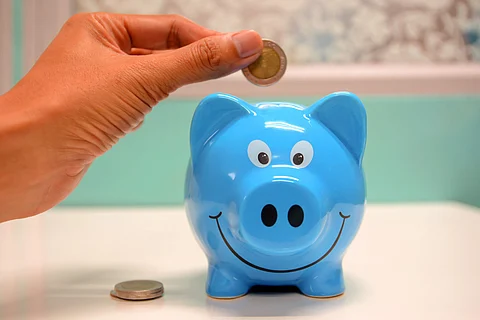

The basic needs of man are food, clothing, shelter, and circus (entertainment?). However, most of us have today graduated from needs to wants and luxuries. However, when the headline inflation numbers hit 7 per cent there is a serious worry about people not being able to meet even their basic needs—and this is a concern. Covid-19 taught us a lot of things—forcefully, but we can use them to make our future lives better.

Eat at Home
Eating out is expensive. Apart from food even coffee made at home is inexpensive. And you get the added benefits of nutrition, hygiene, etc. Small numbers do add up—if you are spending Rs 200 a day eating out, and it costs you Rs 50 to eat at home—you save Rs 150 a day. A systematic investment plan of Rs 150 a day done for 30 years can give you returns in excess of Rs 5 CRORE! Toast butter, vegetable sandwich, Tea, coffee, curd rice, salads—are really simple to make! The most important lesson from Covid-19, you will agree.
Know what you need to buy
You need a plan for almost anything you do! Shopping is not very different—if you stumble around the grocery store and fill your cart with everything that catches your eye, chances are you will spend a lot more money than you needed to spend. Plan your meals for the week ahead, and make careful note of what you need to buy. Purchase only the items on the list, and avoid impulse buys. Buying online is surely better than buying offline, but remember sizes shown may not be what you need!
Buy what you need and then put on Blinders!
Stores are designed to make you go through a long walk to get to the most basic items you need. On the way, you will pick up a lot of things that you do not need, and in quantities that you do not need. Though there is no research in Indian conditions, clearly people do not use all the things that they buy. So, refuse to be bullied into buying! Most necessities and basic cooking items are found along the outside perimeter of the store, start there and work your way around the edge of the store.
Shop on a full stomach
On a hungry stomach you are likely to pick up a lot of things that look like food! You might also pick up a lot of food—which is perhaps un-necessary. On a full stomach, on the other hand, you will most likely be relaxed and not prone to picking up unnecessary stuff.
Shop sans the Kids
Hungry, tired, cranky kids increase the amount of time it takes to get your shopping done. Kids can really bug you into buying things which are bad for your health and for your purse—leave the kids at home or school before you venture out shopping.
Use Store Reward Cards
If the store that you visit most frequently has a reward card, sign up. In some cases, stores raise their prices when they offer reward cards, and without the card your bill will certainly be higher.
Choose unbranded goods!
There is a huge, huge cost difference between a branded product and an unbranded one. Even in the case of “expensive” items such as dry-fruits, if you buy it from a wholesale-retail shop you will find a 20 per cent price difference. Some branded foods like cornflakes, hold your breath, are more expensive than dry fruits on a per kilogram basis!
Avoid Checkout Temptations
Normally, you have some high priced crackers, chocolates, shaving blades—but the cheaper alternatives are just a little further away, so walk a few steps. Picking up things at the check-out counter surely spoils your health—like the chocolate that you eat on the way to the car! Most of the times it also spoils your wealth.
Use sales offers
In Indian conditions, September to December are what we call the “Festive season”—when most of the buying takes place. Hindus, Muslims and Christians all have some festivals for which they buy new clothes during this period. So shop keepers do a pre-festive sale in July and a post-festive offer in January that you can take advantage of.
Buy leather goods during the monsoon and umbrellas during the Winter!
During the non-season, prices of goods are a lot lesser. If you are in a monsoon area, check out for sales in leather goods. There must be one going on somewhere near by. Be alert to use such offers. If you are buying things for your kids, this is even more true. So be awake.
PV subramanyam
writes at www.subramoney.com and has authored the best seller ‘Retire Rich - Invest C 40 a day’